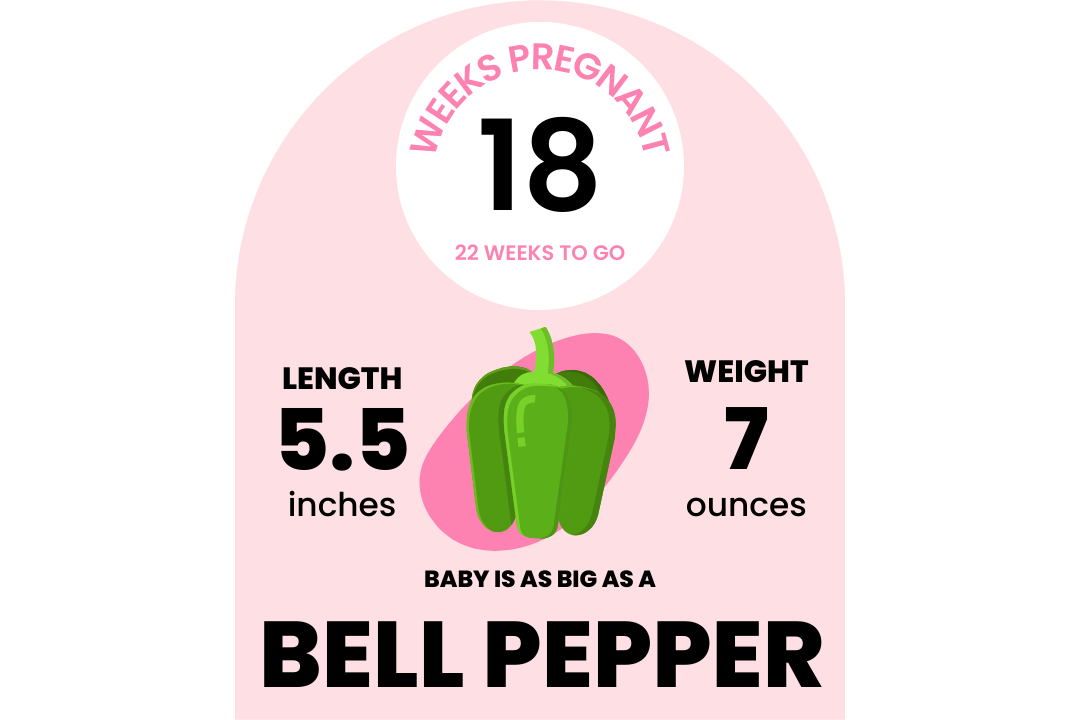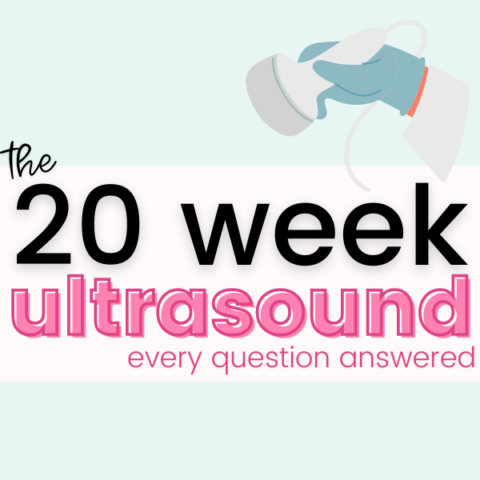
Baby’s growth and size
Baby is right around 5.5 inches in length, maybe even a tad longer and nearly 7 ounces in weight! Almost 2 whole ounces gained since last week.
What’s new developmentally?
There’s a lot going on inside your belly right now, mama. Something called myelin is beginning to form around baby’s nerves.
I definitely don’t expect you to know what this is, unless maybe you are in the medical field. In short, myelin is a protective membrane that wraps around certain nerve cells.
If your baby is a female, her fallopian tubes and uterus are in the correct places. Baby is moving all over the place and just might be big enough for you to start feeling those movements!
Fun facts about your week 18 baby
- Baby can now yawn
- Baby can fully hear this week
- Ears, nose, and lips are all recognizable on ultrasound
18 weeks pregnant ultrasound
This just might be the week you get to check on your sweet baby for your anatomy scan! Typically, the anatomy scan is completed somewhere between weeks 18 – 22 weeks so it might be another week or two.
Also called a level 2 ultrasound, the anatomy scan is a super exciting, and sometimes a little scary, milestone! The sonographer will take a deep look into things like baby’s health, organ development, growth, and screen for some of the more common issues that can be spotted before birth.
A very exciting time because you get to check on baby and see lots of ultrasound pictures (maybe even learn baby’s sex!!) but also a bit scary because it’s the time when you might learn about possible defects, delays, or other abnormalities.
Just remember, early intervention, education, and knowledge are key to giving baby the best possible outcome. For lots more information and details about what to expect at your anatomy scan, be sure to read this article!
Not feeling baby move at 18 weeks
Try not to stress if you aren’t quite feeling baby move at 18 weeks. There is a pretty big range of “normal” when it comes to feeling baby move for the first time. Most women will notice fetal movement between weeks 16 – 24.
Things like location of your placenta, number pregnancies, and fetal activity level, can all play into when this happens.
Women with an anterior placenta, which simply means your placenta attached to the front wall of your uterus, might not feel movement until closer to that 24 week mark. Having an anterior placenta can make it harder to feel baby’s movements because the placenta “cushions” the movements.
Anterior placentas are perfectly normal and shouldn’t have any impact on your mode of delivery. Women that have been pregnant before and felt those movements know what to look (well, really what to feel) for so might be able to spot fetal movement earlier than a first-time mom.
All of this to say, if you haven’t started feeling baby move yet at 18 weeks, you don’t need to panic. There is still plenty of time!




